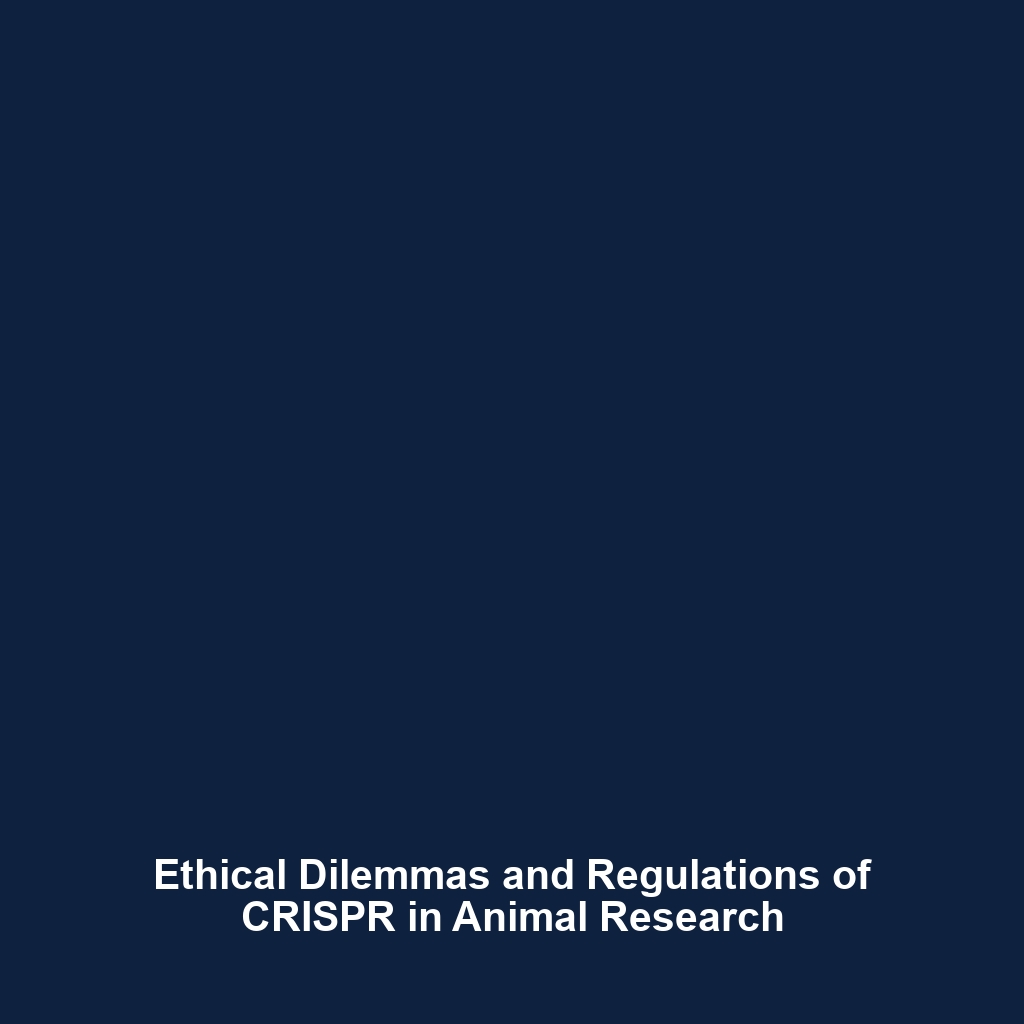Ethical Considerations Surrounding Gene Therapy: Implications of Germline Editing
Introduction
As the frontiers of genetic science expand, ethical considerations surrounding gene therapy, particularly germline editing, have come to the forefront of discussions related to the Human Genome Project (HGP). This significance lies not only in the technological advancements that facilitate gene editing but also in the profound ethical dilemmas they present. Gene therapy has the potential to eradicate genetic disorders, yet it also raises concerns regarding unintended consequences and long-term implications for future generations. This article examines the ethical frameworks that must be navigated as we explore gene therapy’s evolving landscape.
Key Concepts
Ethical Foundations
The ethical considerations surrounding gene therapy can be categorized into several foundational principles:
- Autonomy: Individuals must have the right to make informed decisions about their genetic make-up.
- Beneficence: The therapy must aim to benefit patients and society.
- Non-maleficence: Avoiding harm must be a priority in all gene editing practices.
- Justice: Equitable access to therapies should be ensured to prevent disparities.
These concepts align closely with the overarching goals of the Human Genome Project, which aimed to map and understand the human genome to facilitate advancements in gene therapy.
Applications and Real-World Uses
The applications of ethical considerations surrounding gene therapy are vast and impactful:
- Inherited Diseases: Gene therapy techniques have been applied to treat conditions like cystic fibrosis and hemophilia.
- Germline Editing: Techniques such as CRISPR-Cas9 are at the center of debates about altering the human germline to prevent disease transmission to future generations.
- Potential for Enhancement: Ethical discussions expand to the enhancement of human traits, such as intelligence or physical ability, which raises significant moral questions.
In these applications, the balance between innovation and ethical responsibility remains critical within the context of the Human Genome Project.
Current Challenges
Several challenges are currently faced in the realm of gene therapy, particularly regarding ethical considerations:
- Safety Concerns: The potential for off-target effects and unintended consequences in gene editing raises significant safety issues.
- Regulatory Frameworks: The lack of comprehensive regulations complicates the oversight of gene therapy practices.
- Public Perception: Misinformation and fear about genetic modifications can hinder public acceptance and regulatory progress.
- Equity in Access: Ensuring that all populations benefit equally from gene therapy remains a substantial challenge.
These challenges highlight the pressing need for robust ethical frameworks that guide research and application within the HGP framework.
Future Research and Innovations
Looking forward, innovations in gene therapy are likely to evolve with advancements in technology:
- Next-Gen Sequencing: Improvements in sequencing technologies may enable more precise gene targeting.
- Ethical AI: Artificial intelligence could be used to predict and analyze potential unintended effects in gene editing.
- Global Collaboration: Increased global cooperation can foster a more comprehensive approach to ethical standards and regulation.
As research progresses, the intersection of science and ethics will become increasingly important, especially in the context of the Human Genome Project.
Conclusion
To summarize, the ethical considerations surrounding gene therapy, especially germline editing, remain complex and multifaceted. These considerations are deeply intertwined with the advancements achieved through the Human Genome Project and serve as a vital bedrock for future explorations in genetic science. As we continue to advance in this field, it is crucial to critically evaluate the implications of our actions and strive for a balanced approach that promotes health while safeguarding ethical standards. For further reading, visit our sections on Gene Therapy Innovations and The Human Genome Project Insights.

